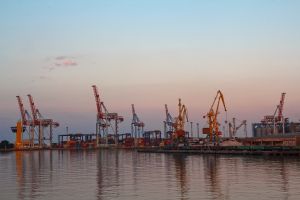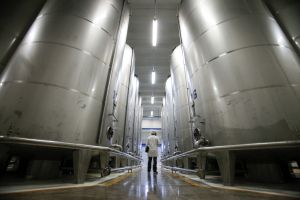This Regional Priority Programme, implemented since 2016, consists of three main interrelated components.
While international trade policy is usually implemented at the border, adherence to food safety, quality standards, and controls for animal and plant diseases requires the support of national systems for disease prevention and control to facilitate the safe transfer and movement of food and agricultural commodities across borders. This means that a supportive policy environment for agrifood trade encompasses not only border policies, but also policies and institutions at national and enterprise levels. Effective markets and efficient, sustainable value chains will help all actors in the production chain play their part in a cohesive food system.
Featured news
Events
27/3
2026
28/3
2026
Workshop on creating and maintaining digital veterinary records
Bishkek (Kyrgyzstan), 27/03/2026 - 28/03/2026
A dedicated workshop is being held to strengthen the capacities of veterinarians and veterinary specialists in the effective use of digital tools for veterinary control and record‑keeping. The event brings together representatives of national veterinary services, field veterinarians, information system administrators, and technical partners involved in the country’s veterinary digitalization ef...
17/2
2026
Technical Workshop on FSBDGs
Bishkek (Kyrgyzstan), 17/02/2026
To support the improvement of population nutrition and the transformation of food systems in the Central Asian region, FAO is assisting three countries, the Kyrgyz Republic, the Republic of Tajikistan, and the Republic of Uzbekistan, in developing Food System-Based Dietary Guidelines (FSBDGs).
11/2
2026
Training on phytosanitary inspection
Bishkek (Kyrgyzstan), 11/02/2026
Training Workshop on application of risk assessment criteria in the field of phytosanitary supervision. As part of its technical assistance to the Kyrgyz Republic, FAO organizes a Training Workshop on application of risk assessment criteria in the field of phytosanitary supervision. It aims at strengthening the capacity of veterinary oversight specialists in applying risk-based approaches to...




























